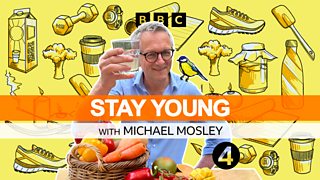Rejuvenate your Brain
Is there a way to halt or reverse cognitive decline?
There has been plenty of research to support the idea that learning something new, especially something challenging, is one of the best ways to maintain our cognitive abilities as we get older, but what is the best way to apply this research?
Recently I was listening to Michael Mosley's BBC podcast "Stay Young", in particular the "Stay Sharp" episode. Towards the end of the podcast, Michael talks with Dr Rachel Wu from the University of California, Riverside. Dr Wu discusses her research which provides evidence that older adults can improve their cognitive abilities to the point that they perform as well as people decades younger.
The "Stay Sharp" episode is worth listening to, and is only about 15 minutes long. The interview with Dr Wu occurs in the last half of the podcast.
The paper published on this research by Leah Fergusona, Debaleena Sainb, Esra Kürümb, Carla M. Strickland-Hughesc, George W. Rebokd and Rachel Wu can be downloaded here.
Methodology
Participants in the studies were aged between 58-86 years in age. They received at least 3 months of classes/training in 3 different subjects. The skills studied were selected as to be new to the participant (they had no previous experience in the subject). They received 2 hours of classes per week in each subject, as well as an additional hour lecture/discussion session. They were assessed cognitively via tests in cognitive control - inhibition and working memory, as well as verbal episodic memory. These cognitive assessments occurred before the intervention, at the midpoint, and at the end of the intervention. There were also follow-up assessments that were done until a year after the study
Results
The study found significant improvements in the cognitive ability of the participants. As Dr Rachel Wu says during the BBC interview; "We found that by the end of the intervention, they were performing in their cognitive abilities at the level of middle-aged adults, 30 years younger than them. And one year after the end of the intervention, they were performing more like younger adults, so 50 years younger than them."
The researchers believe that providing older adults with a rich learning environments akin to those experienced by children may yield considerable immediate and long-term cognitive gains.
Replicating these results
We would all like to maintain or improve our cognitive abilities as we age, and these studies provide a template for how we may achieve that. The protocol we should try and follow is:
- Choose 3 fairly challenging skills to learn over a 3-month period.
- Spend at least 2 hours a week on each skill.
The purpose of this website is to provide free structured resources to help select the skills, to provide encouragement and incentives to maintain the learning over the 3 months, as well as to track cognitive performance to ensure that this learning is having a concrete benefit.
